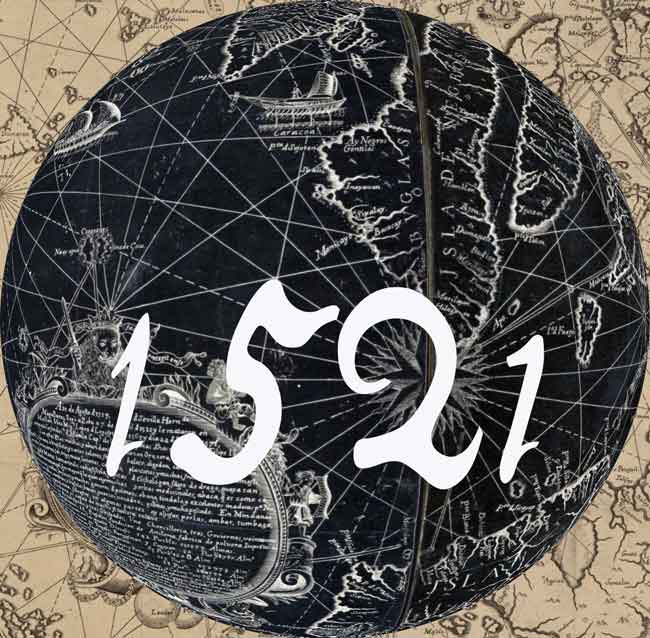

- This event has passed.
1521: Making the World While Breaking the World

Watch this event on YouTube
Although Columbus discovered the Americas at the end of the fifteenth century, the world only became global in the sixteenth century, when the remnants of Magellan’s bedraggled crew straggled back to Spain. Their arrival marked a blue marble moment for early Europeans, as there could no longer be serious doubt about the unity of the globe. For the crew, however, the Europe they found in 1522 differed from the one they departed in 1519. Martin Luther’s 1521 excommunication, which almost coincided with Lapu-lapu’s successful defense against Magellan (in the modern Philippines), had sundered European Christianity. Confessional islands now separated Europeans more firmly than the waters between Cebu and Mactan. It seemed as though the world was falling apart even as the globe was coming together.
Here we propose to explore histories of coming together and falling apart before and after 1521. By inviting conversations across traditional geographical and disciplinary boundaries, we will explore themes of power, memory, and materiality, with the aim of complicating standard narratives of encounters between European and extra-European populations.
Organized by Professor Stefania Tutino (History and Italian, UCLA) and Dr. Devin Fitzgerald (Curator of Rare Books and History of Printing, UCLA Library).
3:00 Welcome remarks
3:10: Panel 1 | Space and Colonial Empire
Professor Stephen Acabado (Anthropology, UCLA)
“Rethinking Resistance: Environmental Practice in the Ifugao Rice Terraces, Philippines”
Professor Stella Nair, (Art History, UCLA)
“Constructing the Inca Frontier: Women, Architecture and Power”
3:50 Q&A
4:05 Panel 2 | Memory and Colonial Empire
Professor Oona Paredes, (Asian Languages & Cultures, UCLA)
“Pericolonial Spaces and the Limits of Empire in Southeast Asia”
Professor Kevin Terraciano (History, UCLA)
“Making Friends and War in Mexico on Behalf of His Majesty”
4:45 Q&A
